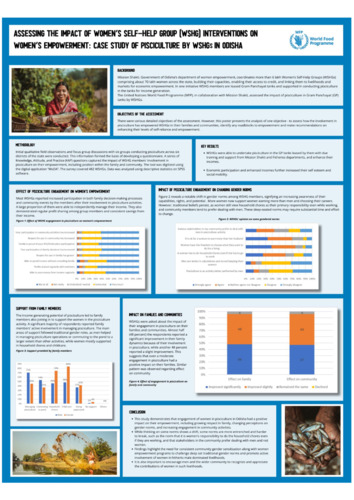Assessing the impact of women’s self-help group (WSHG) interventions on women’s empowerment: A case study of WSHGs engaged in pisciculture in Odisha
Abstract
Objectives: Women’s economic empowerment through participation in women’s self-help groups (WSHG) is a key strategy to transform rural livelihoods in India. The UN World Food Programme in India collaborated with Mission Shakti, Government of Odisha, to assess the impact of a WSHG pisciculture scheme on incomes and women’s empowerment. Methodology: The study followed a mixed-methods approach, with empowerment assessed through a knowledge, attitudes and practices module. The data were collected digitally by Mission Shakti staff and covered 260 WSHG. Key results: (a) For most WSHG, work in pisciculture had a positive impact, including growing respect within the family and increased engagement in community activities. (b) Impact on changing gender norms is visible, with many women believing it is OK to earn more than men. However, women still felt that household chores were their primary responsibility, even if they were working. (c) WSHG members received support from their families in managing pisciculture operations including pisciculture related tasks, commuting to the pond, paperwork, household chores and childcare. Contributions/implications of the findings: (a) Women’s participation in WSHG activities has a positive impact on their empowerment and participation in family and community. (b) Community gender-sensitization programs are required to challenge traditional gender norms and promote active involvement of women in male dominated livelihoods. (c) It is important to also encourage men and the wider community to recognize and appreciate the contributions of women in such livelihoods.

